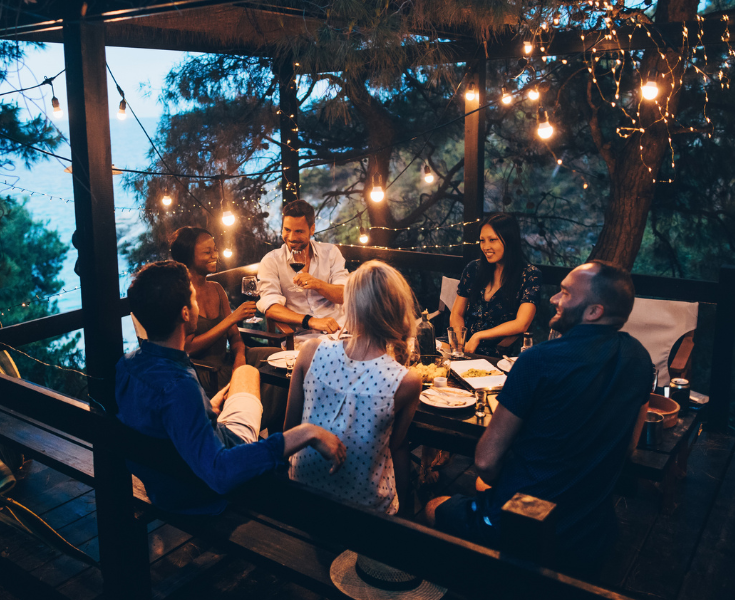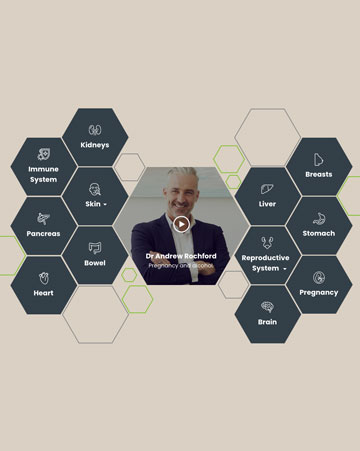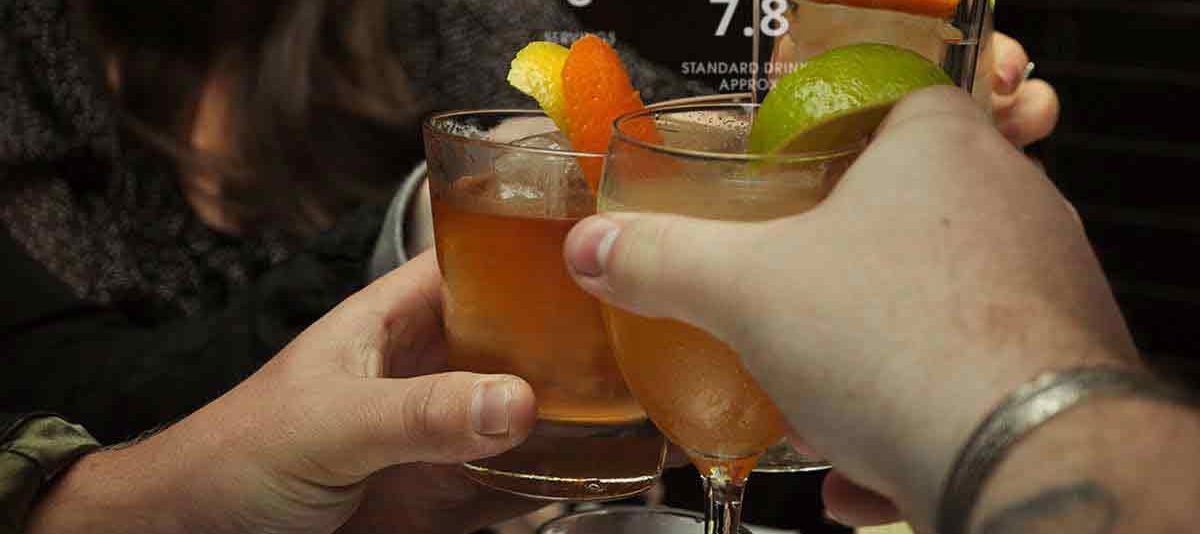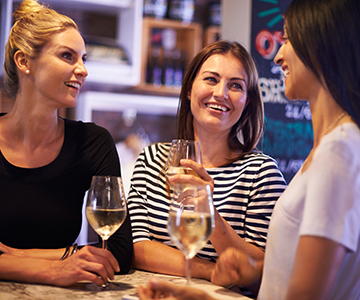Promoting moderation and support services at the point of purchase
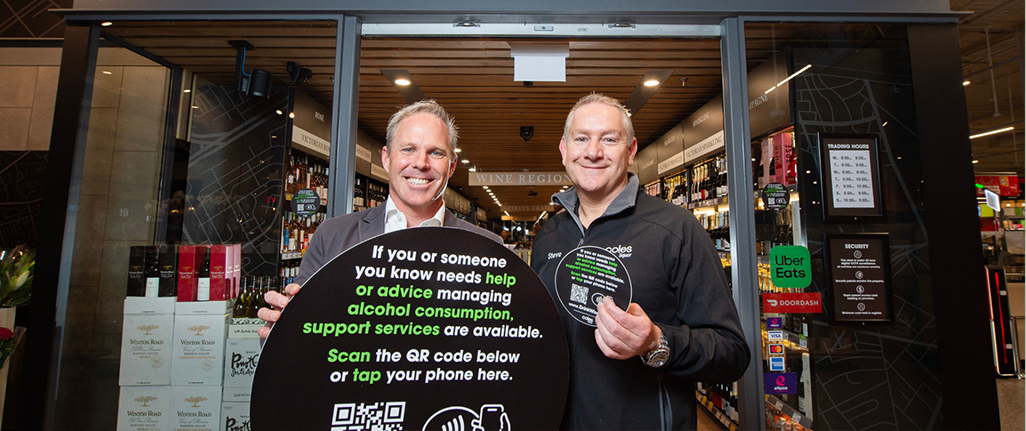
Coles Liquor supporting customers to DrinkWise and ask for support if they need it.
Coles Liquor customers can now encounter innovative in-store signage, linking them to available support services. These services can be accessed if they, or someone they know, need help or guidance managing alcohol consumption. Customers at any of the 960 Liquorland, First Choice Liquor Market and Vintage Cellars stores can scan a QR code or tap their mobile device to link directly to contact details for a range of support services including:
- National Alcohol and Other Drug Hotline
- 13YARN
- 1800RESPECT
- Men’s Referral Service
- Lifeline
- Beyond Blue
- Alcoholics Anonymous.
These signs are an important reminder for customers who are choosing to purchase and drink alcohol that there are support services available that can provide advice and assistance. If a customer or someone they know is having trouble managing their alcohol consumption or their behaviour and their choices are impacting the safety of others, it is important for them to know that asking for help is okay.

DrinkWise messaging on beer taps

DrinkWise is trialling an innovative approach to extend moderation messaging in licensed venues. The trial sees over 250 digital beer taps at 40 venues in Western Australia, New South Wales, Queensland and Victoria showcasing DrinkWise messages. The taps will remind consumers to moderate their alcohol consumption. Customers will be able to scan a QR code to access standard drink information or to seek support if needed.
Endeavour Group trials dedicated zero and lower-strength sections in BWS and Dan Murphy stores
In 2021, DrinkWise research found that a third of all Australians who had decreased their alcohol consumption had used low and non-alcoholic options to cut back. Almost half of those people were willing to use low or non-alcoholic options to help them lower their alcohol intake. However, the DrinkWise study – which surveyed 3,000 Australians – also found that despite the increasing popularity of lower-strength alternatives, there was still a perceived stigma. Of those Australians aged 18 to 44 participating in the research, 35 per cent stated they would hide the fact they’re not drinking alcohol or drinking lower strength products.
To help raise awareness about how these zero and lower-strength alternatives can help consumers who might be drinking at risky levels lower their alcohol consumption, DrinkWise partnered with Endeavour Group to trial dedicated zero and lower-strength sections at selected Dan Murphy’s and BWS stores.
This was combined with in-store messaging to help encourage consideration of zero and lower-strength alcohol options at the time that purchases are being made.



DrinkWise working with the Parliamentary Friends of Preventative and Public Health

In 2023, DrinkWise and the Parliamentary Friends of Preventative and Public Health co-hosted an educational event at Parliament House in Canberra.
Parliamentary Friends of Preventative and Public Health Co-Chairs Dr Michael Freelander MP and Dr Helen Haines MP, Emergency Physician Dr Andrew Rochford and DrinkWise Chief Executive Officer Simon Strahan, addressed Members of Parliament, industry, academic and community representatives about how the drinking culture in Australia has changed. The event provided a valuable platform to:
- share DrinkWise’s research on consumer attitudes towards zero and lower-strength products
- highlight the work DrinkWise has been doing to encourage those drinking at risky levels to consider zero and lower-strength options as a means to reduce their overall alcohol consumption.
While it was acknowledged that Australia continues to make progress towards a safer and healthier drinking culture, it was also emphasised that ongoing education is critical. Dr Helen Haines MP expressed her commitment to continuing the relationship with DrinkWise, stating, “Together, we can educate consumers, promote moderation and responsibility when drinking and help make our drinking culture in this country safer.”
This educational event at Parliament House is another great example of how government, researchers, community, industry and other stakeholders working together in a whole-of-community approach can lead to a safer and healthier drinking culture in Australia.

 Audio
Audio Video
Video
